|
Bell Meadows Farm Miniature Donkeys in Lone Oak, Kentucky has done it again!. Melanie Bell, co-owner of the farm announced on Facebook the birth of a third baby within weeks of each other. At 6 p.m Thursday evening, August 26, Patsy Cline had her first foal. Though, the event didn’t go according to plan.
Patsy is a first time mom and ‘doesn’t know what to do at all,’ said Bell. “We have to tie her up so she doesn’t kick him.” Bell is prepared for a long night. She said the newborn needs colostrum and Bell needs to make sure Patsy doesn’t hurt him. There were posts from concerned family and friends asking ‘what will you do if Patsy refuses to bond?’ Bell commented that it’s never happened before. She’s been breeding, raising, and loving her donkeys since 2008 and this is new territory. Her plan is to sleep on the Tempur-Pedic mattress until she feels comfortable leaving the two alone in the stall. At 1:30 a.m., Bell is still in the stall with Patsy and the beautiful, fluffy baby boy. “I’ve been holding Patsy on a lead rope in the stall for hours making sure she stood still for the baby to nurse and didn’t kick him away.” said Bell. About an hour ago, Bell took Patsy off the lead rope to observe her behavior. “I think Patsy is going to eventually get a little better at being a mom,” sighed Bell. Since Bell’s been awake into the wee hours of the morning, she’s been doing a lot of praying. Praying for Patsy to love her new baby. Praying for those in the path of hurricane Laura. Praying for a lot of things.” The foal is running around the stall and having fun. Bell took Patsy off the lead and is sitting in the stall with mother and baby. Patsy hasn’t tried to kick hard and she is standing and letting him nurse. “She is still swatting at him with her leg but isn’t trying to send him sailing across the stall.” said Bell. Another hour or so and hopefully Bell will be more comfortable leaving them alone. Bell said she has to work in the morning and she’s afraid she’ll ‘feel like the walking dead.’ As she watched the new baby play, she’s thinking, “Just when I don’t think I could get a cuter baby, I’m just blown away at how beautiful this sweet boy is. He is very imprinted. I’ve played with him all night. Baby seems to be doing great despite all the trouble. He’s one tough little guy.” There’s more news...Mudpie will have a new home. If you recall, he was the second baby born on the farm within the last couple of weeks. And there’s more, a fourth baby will be arriving soon. Talk about heaven.
0 Comments
COVID-19 war stories are being shared as people begin to recover from the elusive disease. One of the most interesting comparisons are the symptoms associated with each positive case. Some of the more common symptoms include fatigue, sore throat, cough, shortness of breath, and fever. Others experience more flu-like symptoms such as muscle aches, chills, nausea or vomiting. One of the more peculiar symptoms is the sudden onset of hyposmia or anosmia (decrease in smell).
As more is learned about severe acute respiratory syndrome coronavirus 2 (SARS-CoV-2), the inability to smell or taste can be an early indicator of the disease. Interestingly, this may be the only symptom an otherwise asymptomatic person exhibits. Sicker patients that need to be hospitalized are experiencing the loss of taste and smell more frequently. As the percentage of patients increases, so does the need to study this phenomenon. As of June, olfactory dysfunction is now included as diagnostic criteria for COVID-19 patients. Local resident Carlos Chavez experienced something quite different from the typical symptoms, at least at the onset. His story begins here. For Chavez, COVID-19 felt like a heart attack and he explained the events that led to his positive diagnosis. It was a Monday morning and Chavez was working from home. The day was like most other days but he was more tired than usual. “It was a Monday so I figured it was just one of those Mondays,” he said. The next day, he worked from home and had plans to attend his daughter’s T-ball game later that evening. While at the game, he felt tired, anxious, and ‘fidgety.’ His wife, Liz bought nachos at the concession stand for Chavez to have as a snack. “Near the end of the game, my chest was tight and I had the worst heartburn of my life,” said Chavez. His wife is an ER chest pain nurse and thought he might be having a heart attack. He was experiencing shortness of breath, chest pain, fatigue, and tingling in the arms. At first Chavez brushed off the idea of a heart attack. He thought the tingling in his arms might be related to withdrawal symptoms associated with quitting smoking. Just under a month ago, Chavez quit ‘cold turkey’ and was quite proud of his accomplishment. Liz disagreed with his self-diagnosis and insisted they head to the hospital. That evening, Chavez was admitted. It wasn’t until the next day that he was tested for the coronavirus. One hour later, Chavez found out he had tested positive for COVID-19. After hearing he had the coronavirus, feelings of trepidation and dread consumed his thoughts. “My mind went to the worst place. I felt panic and fear. I’ve read horror stories about the virus. The fact that I was a smoker, concerned me the most.” He continued. “I didn’t want to be on a vent. I didn’t want to put my family through watching me slowly decline and potentially die.” Since Chavez was experiencing breathing issues, his oxygen levels were continuously monitored. The hope was to keep levels above 90 but if it dropped, supplemental oxygen would be administered. (Supplemental oxygen is prescribed by a physician to provide the body with extra oxygen needed to support vital bodily functions in the presence of heart or lung disease). Chavez’ oxygen levels stayed above 90 and he was released from the hospital to quarantine at home. The first four or five days, Chavez slept. He said, “I had no energy. It felt like I had the flu times 10”. He quarantined in his bedroom and only exited to use the bathroom or to eat. Chavez said, ”Everyone stayed in their own bedrooms and my wife slept on the couch. We had sanitizer in every room and Liz made the meals. All food and drink tastes the same post-Covid. I didn’t notice a change with my sense of smell. Thankfully, everyone else in the house tested negative.” The contact tracer from the health department checked on Chavez daily. The same questions were asked everyday, “How are you feeling? What symptoms are you experiencing? The health department told Chavez normal recovery time was 10 to 14 days. He was cleared this past weekend. Chavez said he still has breathing problems. “Every day there’s improvement,” he said. “I get tired easy and walking to the end of the driveway to get the mail feels like I’ve walked two to three miles.” He’s back at work. Chavez is network operations manager at Computer Services, Inc. in Paducah, Kentucky. “The first few days it was tough having normal conversations. My throat was sore and my breathing was compromised.” He worked half-days and has plans to gradually ease back into a full work day. After the frightful experience, Chavez is taking extra precautions to stay safe. He said he washes his hands constantly and is still apprehensive about being around people. “I’ve been cleared by the health department but I’m paranoid and never want to go through that again.” Chavez stated that he has no idea where he might have picked up the virus. Other than grabbing lunch at a fast food place and using the pump at the gas station, he hadn’t traveled or attended any large gatherings. In addition, he's ‘masked-up’ and washes his hands regularly. It’s a mystery with limited clues. The virus is as tricky today as it was with the first reported case. The highly contagious SARS-CoV-2 will attack any age, ethnicity, or socioeconomic status. Medical professionals advise the public to follow the science and wear masks, social distance, and wash your hands. Chavez’ tale isn’t cautionary. It’s a ‘real life’ story. Sheldon is a beautiful boy born 10 days after Marti on Bell Meadows Farm Miniature Donkeys8/22/2020
The new baby boy two hours after birth at Bell Meadows Farm Miniature Donkeys.
Babies, babies everywhere! Bell Meadows Farm Miniature Donkeys has been delivering foals (babies) left and right. The second baby arrived on the farm 10 days after Marti's arrival and he's a beautiful, small baby boy.
Melanie Bell, co-owner of the farm with her husband Kevin, said in a Facebook post that the picture doesn't represent his true color because he isn't all cleaned up and dry yet. The pictures were posted to their Facebook page two hours after birth. 'He is nursing well and very spunky. He has a white blaze face with brown and gray spots.' Bell continued to 'paint the picture' of the furry bundle describing the color of his coat as frosted white with gray spots and brown face and ears. She said that he will stay small...around 29 - 30 inches at the withers is her best guess and that he will make a beautiful herd sire. A herd sire is one of the most important decisions a breeder can make for it will determine most of the genetic components of the herd. Lone Oak residents get to watch all the babies run around on the farm. Bell Meadows Farm Miniature Donkeys is located in the heart of Lone Oak, Kentucky. Mudpie was the foal's given after birth. The new owners have named him Sheldon. After the babies are sold, Bell takes care of them until they're ready for their new home. What fun it will be getting to see the foals play in the field. Bell Meadows Farm is located on 3675 Lovelaceville Road in Paducah, Kentucky. Christa Dubrock - CD1 Kentucky Pledged Delegate to Biden/Harris 2020 at
Democratic National Convention
It’s 2:15 a.m. and Daisy Mae is pacing. She’s definitely in labor. “She’s so loving, sweet, and clingy when she’s in labor. She likes the company when I’m with her.” said Melanie Bell. It’s 2:45 a.m. and she’s sweaty and there’s more 'poop' on the fresh shavings, another sign of labor. It’s 3:06, she’s stopped pacing. Both Bell and Daisy Mae are yawning. It’s 4:45 a.m., it’s a girl!
Smack dab in the heart of Lone Oak, Kentucky is a full-service farm that’s been in the family since the 1940s. Melanie Bell, a Paducah Tilghman graduate, and her husband, Kevin moved to the second-generation family farm on Valentine’s Day 1992. Bell Meadows Farm, formerly Ham Farm, was previously owned by Kevin’s maternal grandparents, Earl and Edna Ham. After Edna passed away in 1991, the Bell’s became the proud, new owners of the family farm. The 65 acres of farmland located on Lovelaceville Road extends as far back as the Lone Oak Tennis Courts at 400 Lakeshore Drive. Currently, the Bells lease 33 acres for farming soybeans and corn and the rest of the acreage is farmed by the Bells. The land cultivates good, quality hay and is sold to local farmers to feed their livestock. Through the years, animals have always been a big part of the farm. In 1947, a large concrete barn was built and used to board horses. The farm raised cattle in the 40s and 50s and again in the 80s through 2010. Even their eldest son Cole knew how to turn a dollar by raising chickens. He started with a few hens as a preteen and launched a chicken egg business. At one point, there were 60 chickens on the farm. For 11 years, he operated Barnyards Best Fresh Country Eggs and sold to local restaurants and surrounding residents in the area. Melanie said, “We had a refrigerator on our back porch for many years and people would leave their money in a jar and get fresh eggs in cartons out of the refrigerator on the honor system.” The farm is home to many animals: wild turkey, deer, fox, coyotes, skunks, groundhogs, opossums, owls, hawks, all God’s woodland creatures. One of the most beloved animals living on the farm are Mel Bell’s donkeys. In 1996, an eight month gelding named Elvis arrived on the Bell farm. For a time, goats were raised on the farm and they were Elvis’ best buddies but Melanie’s heart was with the donkeys. Elvis is now 25 years old and is as much a part of the farm as any one person, animal, or fixture. In 2008, the Bells bought five six-month-old baby Jennets (female donkeys) and a five-month- old baby Jack (male donkey for mating). When the donkeys turned three years old, it was time to breed, raise and sell registered miniature donkeys. This was the beginning of Bell Meadows Farm Miniature Donkeys. Melanie is the caregiver of the 'much loved' donkeys. From birth, she takes care of the donkeys or babies as she calls them. “The babies on the farm generally see me before they see their real mom because I get in there and towel dry them and clean them up as soon as they are born and mom is resting a minute.” Bell said this is called imprinting and “they love me like another mom.” Bell said donkeys have similar personalities to dogs. “They love to be cuddled, brushed and are very affectionate.” They know their names and they think of her as one of them and trust she will be there when it’s time to give birth. Donkeys gestate for 365 days and are bred on Bell Meadows between April and October. Typically, the foals (babies) will nurse for six months and will be weaned by Bell if the mother hasn’t already done so. Bell said the donkeys are definitely pets and it’s hard to see them go, but they are stock for her business. There’s a waiting list for these docile creatures. After birth, Bell said she usually calls the first person on the list to see if they’re interested. She’ll share the sex of the foal and the color. If they prefer to wait till the next birth, Bell calls the next person on the list. She says she likes loving the donkeys and getting them ready for their new home. They’re usually sold 24 - 48 hours after birth. “I’ve only kept one baby so far and that’s Loretta.” Loretta was born in 2012 when temperatures remained over 100 degrees for 10 consecutive days. She said the baby had to have IVs in order to stay hydrated. Bell said, “I always get attached but with Loretta I was super attached because we worked so hard to save her.” She continued, “Loretta had a hard time nursing to hydrate and getting the proper nourishment needed after birth. The heat was horrible”. Bell is responsible for the day to day donkey care and maintenance. She said her husband and family help with hauling hay, worming, and taking the donkeys to the vet, if necessary. A Farrier comes four to five times a year to trim their hooves. Bell scoops the poop, feeds, maintains, loves, and spends time with her animals. “Regardless of the weather, the animals need to be taken care of. If it’s 104 degrees or 12, it’s a year-round job.” The Bell family have outside jobs and generally stay 'six to 12 months behind' on the farm. “On farm days, we’re busy checking on the donkeys, cleaning out the troughs, hauling food, cleaning manure out of the barn, checking and fixing fences, cutting trees, maintaining the farm equipment, disking, planting, cutting, raking, and hauling hay.” said Bell. The Bell’s two sons are grown and no longer live on the farm. When there’s a big job to do, such as new fencing or cutting down trees, the sons are there to help. In fact, Bell said much of her strength comes from God and her family. “My family is always a phone call away in an emergency or when I need to discuss a farm issue. I couldn’t do it without God taking care of me and blessing me through tough times including cancer.” After giving birth this morning, Daisy Mae is doing well and her foal is already nursing. Bell said, “She’s a beauty.” Facebook posts are pouring in congratulating Daisy Mae on a job well done. Neighbors in Lone Oak are excited for the opportunity to watch the foal in the field. Being right smack dab in the middle of the suburbs is a joy for the residents that walk or drive-by Bell Meadows. Seeing the donkeys play, run, and enjoy their day is special. Bell said, “my favorite time of the day is usually when the work for the day is done and I get to come into the house and get warm or in the air conditioning and relax after doing chores.” Her favorite part of farm living is ‘watching the animals give birth and watching the miracle of life.’ “Hello from South Texas!” said Andrea Worthen Falcon. If there was ever a person with a sunny outlook, it would be Falcon. Her positive attitude and love for people has provided hundreds of students with a teacher, mentor, and part-time mom. After 25 years in public education, she will be retiring in 2021.
Falcon has always been cheerful. In high school, she sang soprano in the choir with music in hand and a melody in her heart. Four years after graduating, Falcon left Paducah, Kentucky and later moved to south Texas returning to her hometown for the occasional visit. Her home is in Los Fresnos, Texas and her remaining year as an assistant teacher in special education is in for a bumpy ride. Knowing there’s one more year left in her career is bittersweet. There’s also the elephant in the room, COVID-19. Falcon’s last year as an assistant teacher will be marred with the devastation of a ‘little-known’ virus that has cost so many their lives, jobs, and sanity. The community of Los Fresnos, Texas is located in Cameron County and part of the larger metropolitan area that includes Brownsville, Harlingen, Raymondville and Matamorors. It’s home to over 400,000 people. The area is 90% Hispanic with 30% of the population under 17 years of age. The median family income is $38,000. Falcon teaches at the Los Fresnos Consolidated Independent School District. There are nine elementary schools, three middle schools, two high schools, and 10,000 students. Los Fresnos is only minutes from South Padre Island, the Mexican border and the city of Brownsville, the largest city in the county with 180,000 people. The community where Falcon teaches and lives is disadvantaged. Most of the adults have two or three jobs just to make ends meet. She said south Texas has been hit hard by the pandemic. Falcon has personally known several people that have died from COVID-19 and there’s no way to trace the root of the cause. She said, “Families here are losing both parents to the virus. Just two weeks ago, a mother died of COVID after giving birth en route to the hospital. She was only 21.” “The community is very family-oriented,” said Falcon. She believes this could be a reason for the spike in COVID cases. Since Los Fresnos is close to South Padre Island and the Mexican border, friends and families like to get together for holidays. Falcon said they’ve been seeing over 1,000 positive cases a day in the area over the past week. Texas Public Radio, an NPR affiliate, confirmed Falcon’s numbers. The Rio Grande Valley, home to the University of Texas and the southernmost tip of Texas, is recruiting nurses from all over the country to help with the exhausted medical teams. Refrigerated trucks have been brought in for bodies because the morgues are full. Falcon said, “There are no funeral services for those who’ve died from COVID,” she continued, “Ambulances sit outside the emergency room with sick patients waiting to be admitted to the hospital through the ER. Heaven forbid you have a non-COVID emergency.” Falcon said she does have some anxiety about going into the classroom, however, her family won’t live in fear. She said the school system where she teaches is a ‘prayerful district and she knows they’ll do what’s best.” The school district sent a questionnaire to parents several weeks ago asking for feedback related to in-person classes and online instruction. It was determined that students would receive three weeks of remote learning, after which there will be 72% staying remote, 13% hybrid, and 15% on-campus learning. Students, faculty and staff that will be on-campus will have daily fever checks and will wear masks. Gloves will be provided where necessary and hand sanitizer will be placed throughout the campus. There will be plastic plexiglass separating students and teachers will sanitize in between classes. “The students that will be on-campus really need to be on-campus,” said Falcon. In Los Fresnos, students receive breakfast and lunch free and sometimes dinner if they’re being tutored after school. “Having meals provided five days a week is a blessing to many families,” said Falcon. She continued, “The children that need to be in school, are looking for a safe haven from the troubles outside the school walls.” Teachers will use Google classroom for online learning. Falcon says this is new to her and there’s some anxiety, however, she loves to learn new things. If the teacher Falcon works with is unavailable she’ll be trained to take over teaching duties. “I totally love what I do,” said Falcon. While attending Paducah Tilghman High School, former teacher Pat Miller asked her to participate in a tutoring program for students with special needs. Falcon said she needed a job and decided to get trained and tutor. In finding her ‘forever’ job, she’s spent 24 years as a special education assistant teacher helping those with learning disabilities.This year will be her last. In Los Fresnos, Falcon said she is more than a teacher to her students. Though in the minority, students look up to her as a mentor. She said several of her students are on the spectrum, some are in gangs, and others have one or both parents incarcerated. She continued, “If I can make a difference in at least one student’s life each year, I’ve done my job well.” |
Written by
Liz Latta Archives
July 2021
Categories |
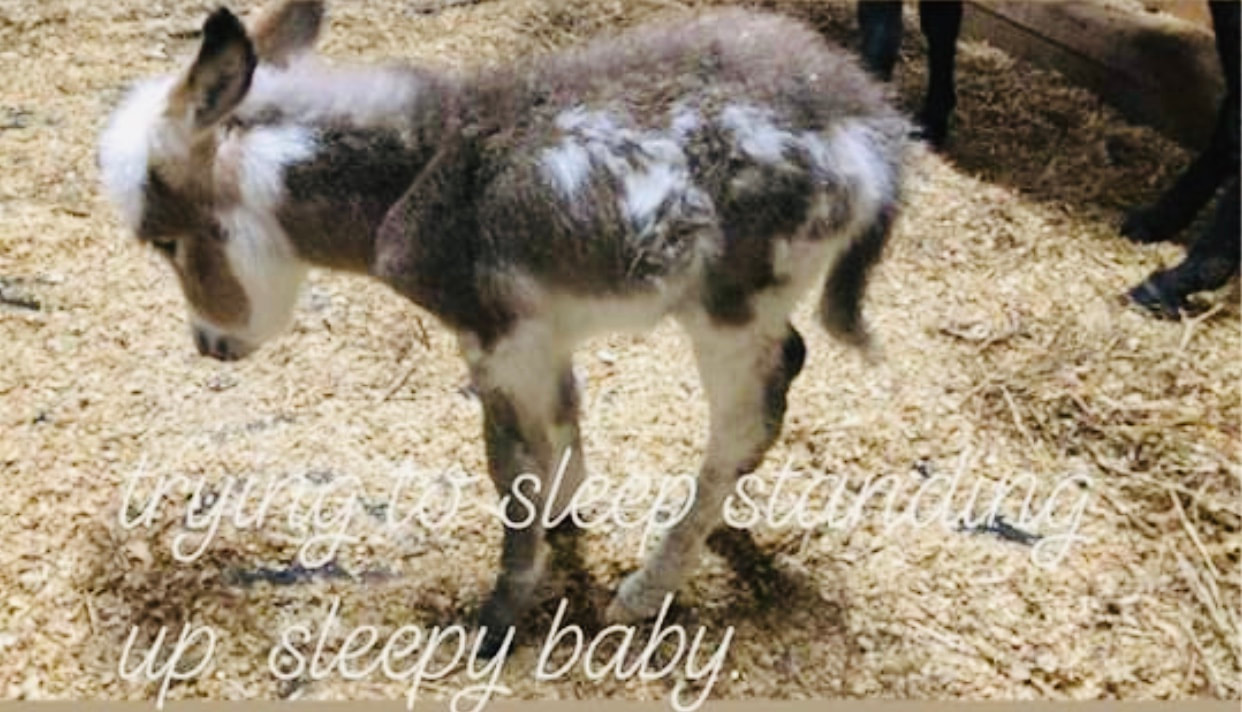
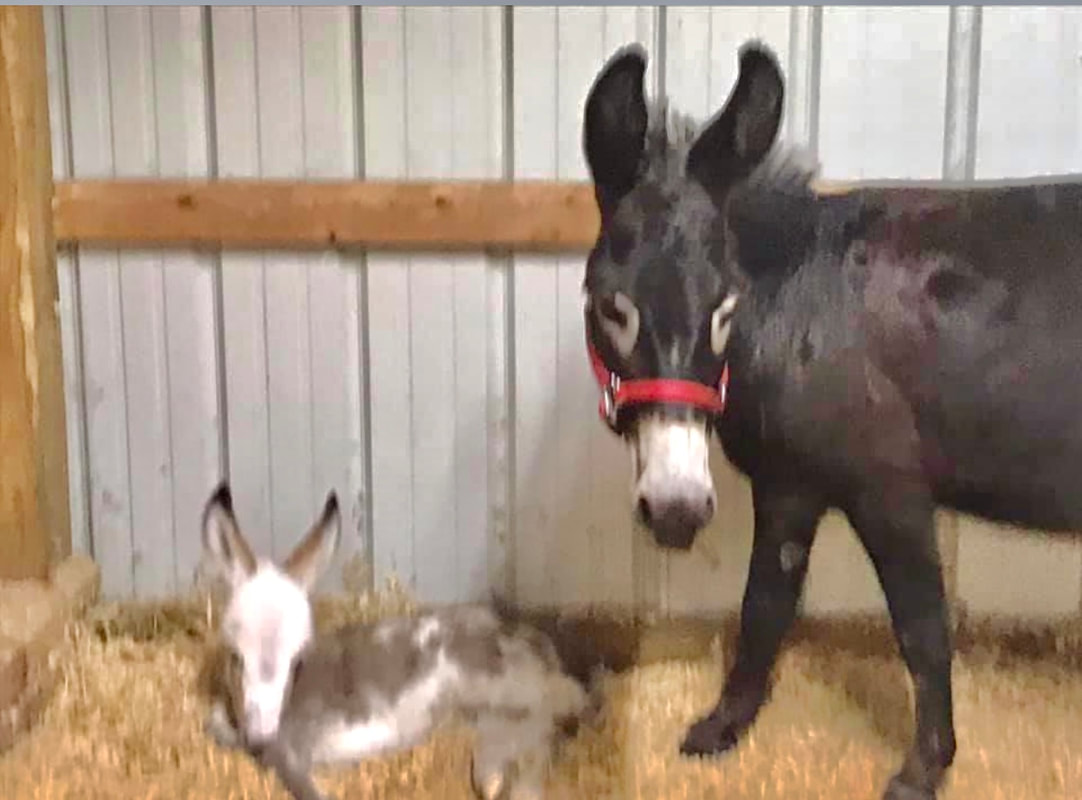
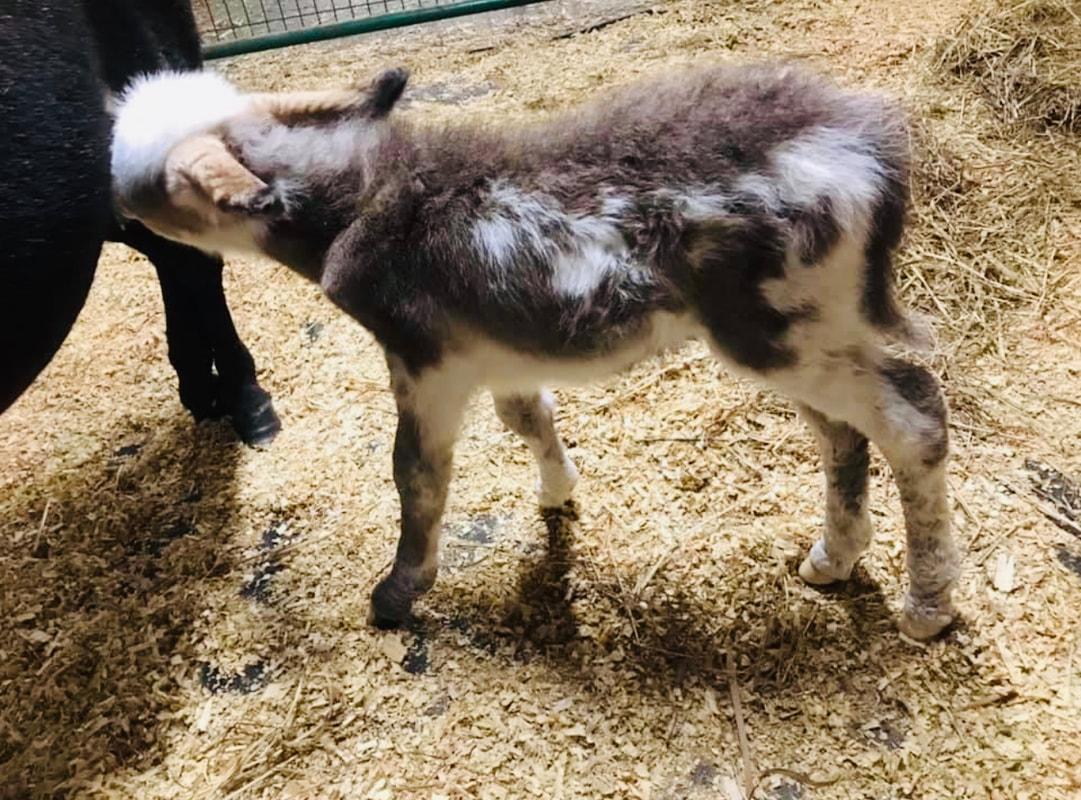


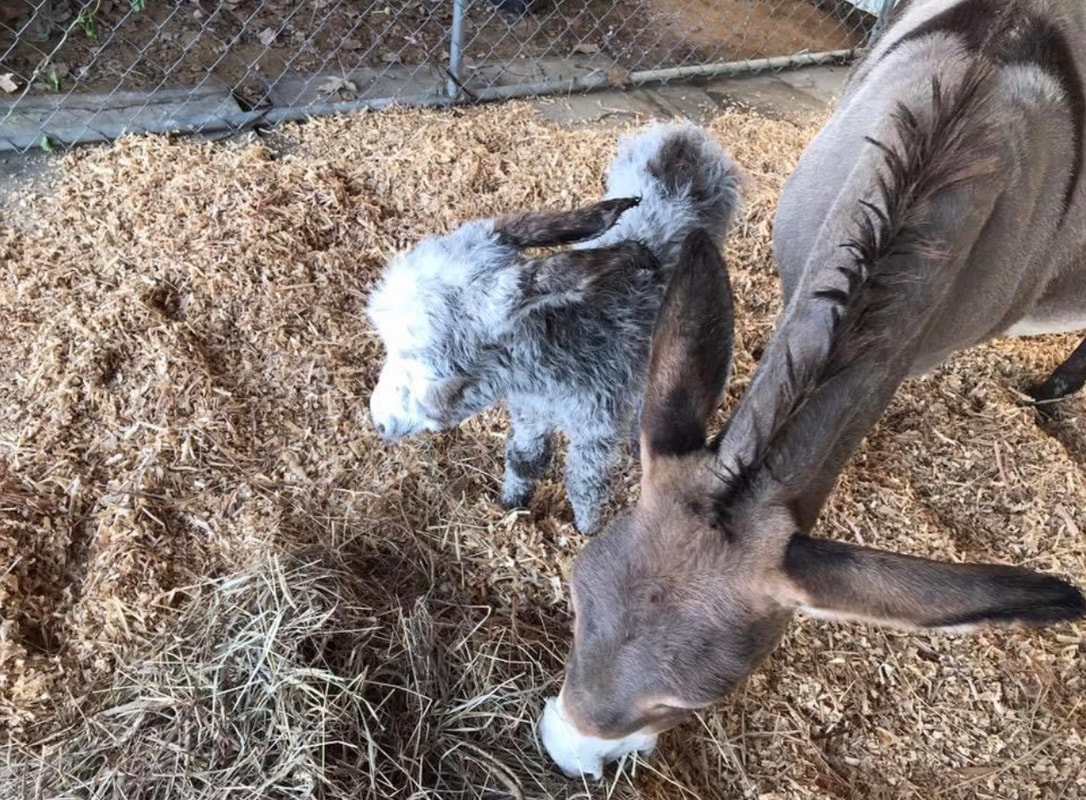
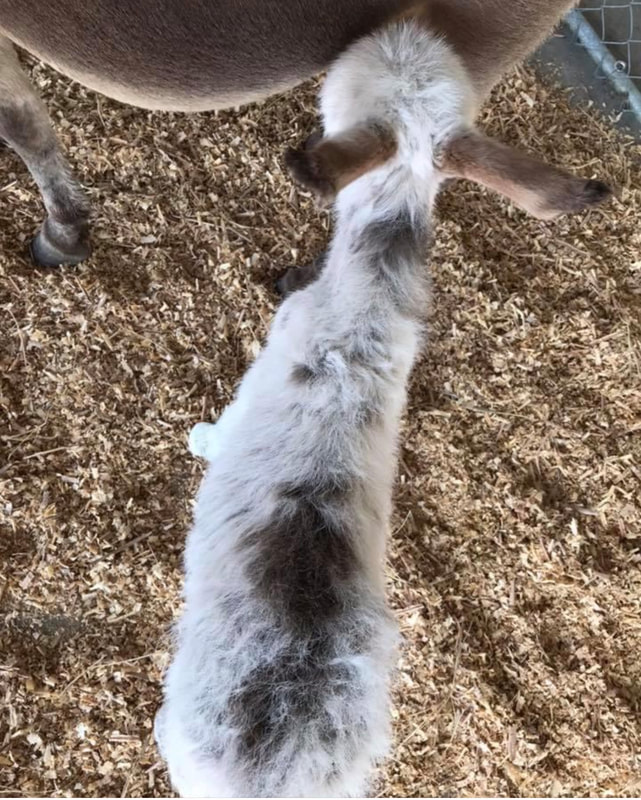
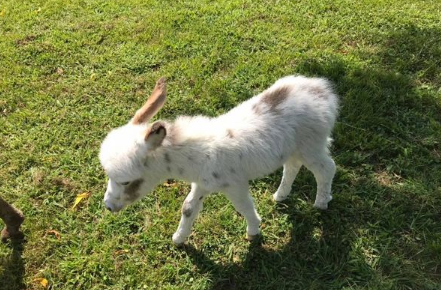
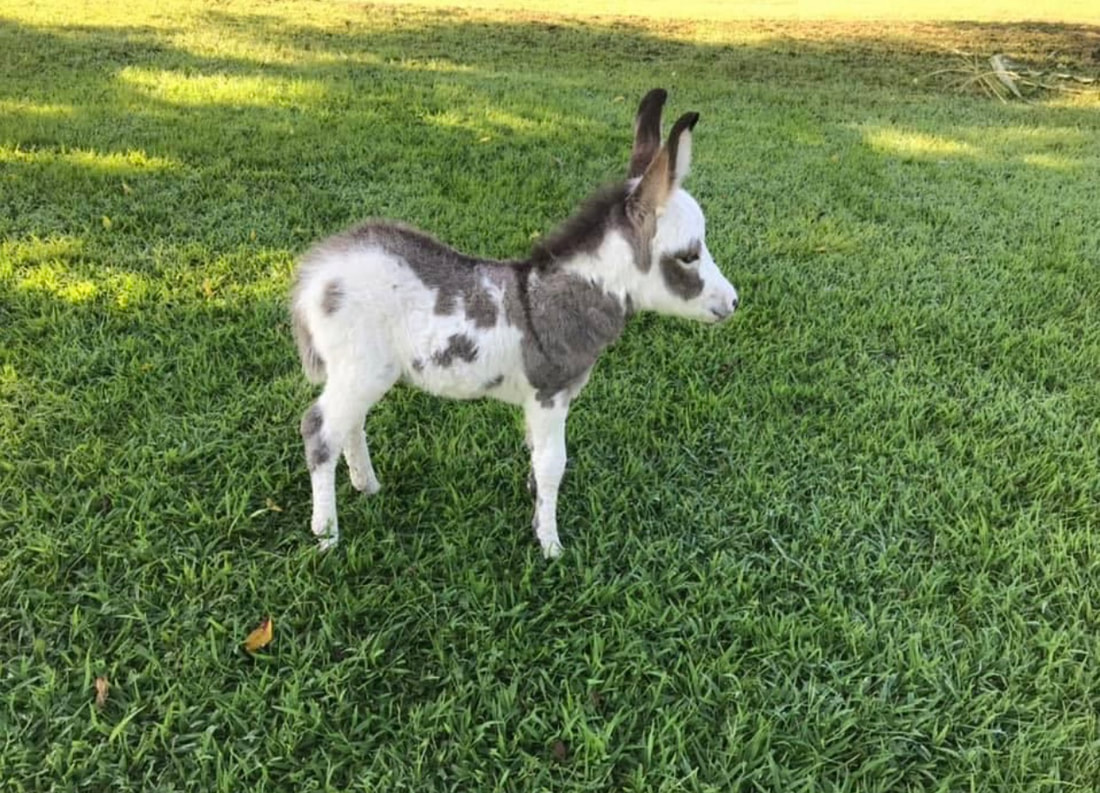

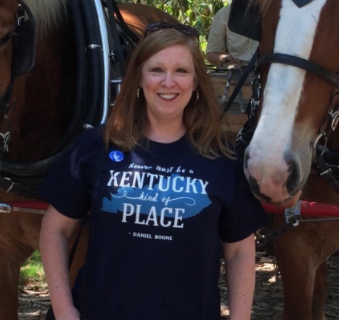
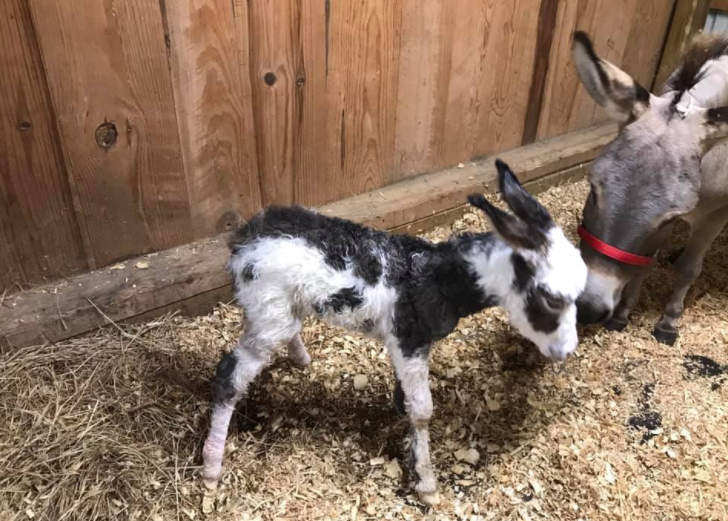
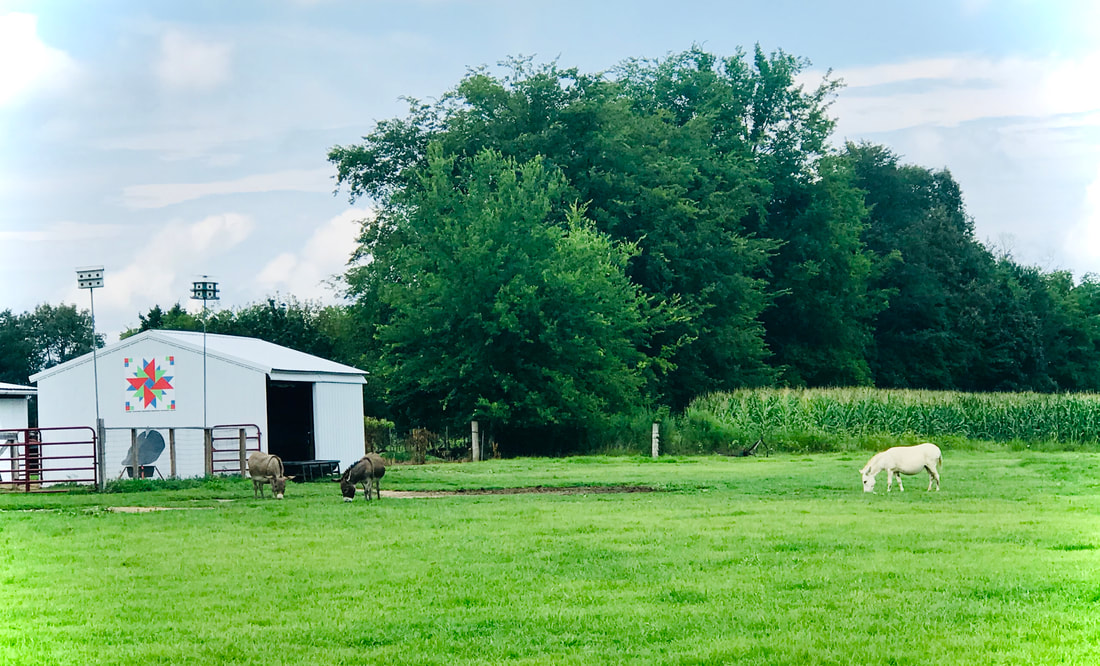
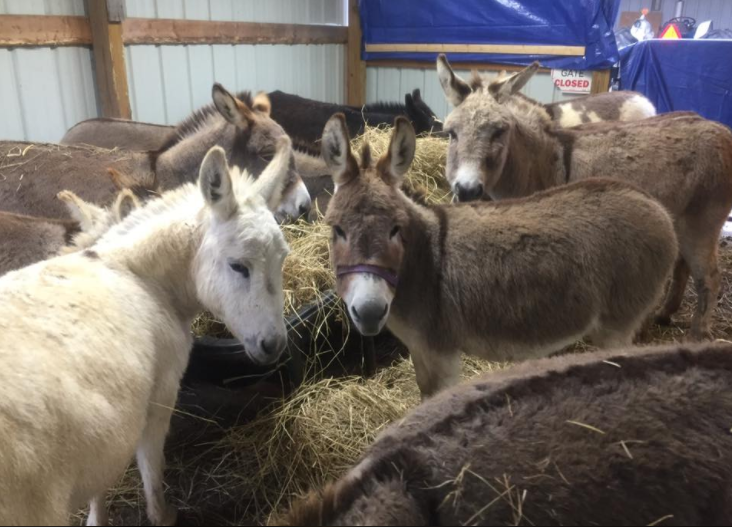
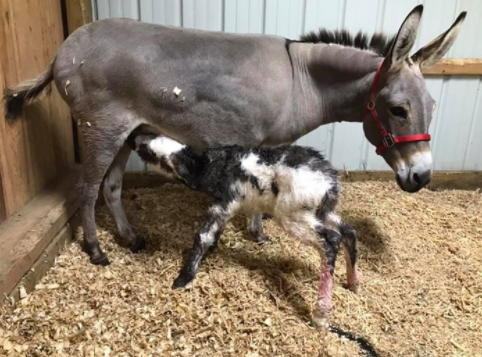
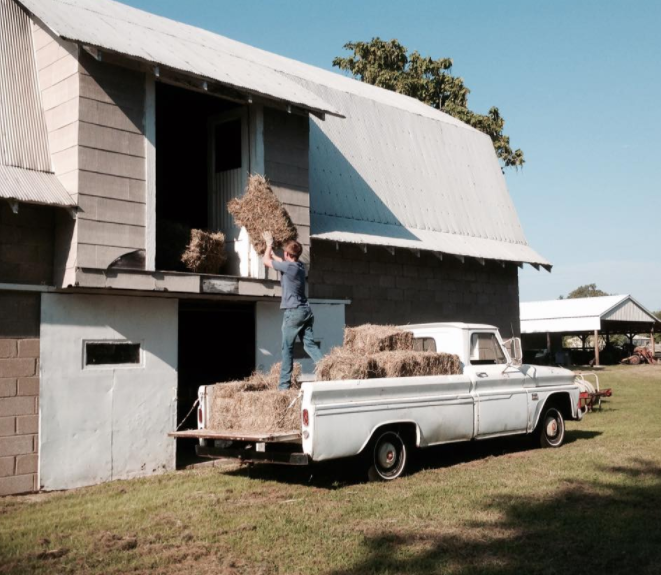
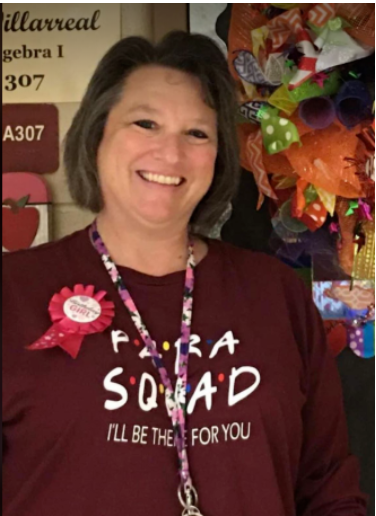



 RSS Feed
RSS Feed